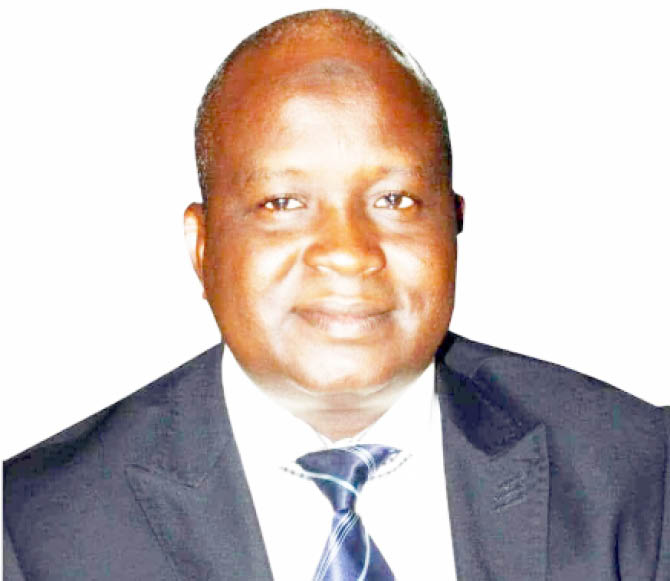Sulaiman Usman (SAN) is the Attorney General and Commissioner for Justice of Sokoto State and a Life Bencher. He has been in legal practice for over 17 years. In this interview, he speaks on the disciplinary mechanism of the NBA, incidents of disobedience to court orders, Supreme Court judgment on Executive Order 10, and sundry issues.
Over 150 judgments have been disobeyed and it is suggested that the NBA should open a black book to enter the names of AGs whose governors disobey court judgment. What is your take?
- Energy Crisis: Nigeria to lose N1.2bn daily over Agip oil export cut
- Buhari congratulates Radio Nigeria Kaduna at 60
Judgements and orders must be obeyed because that is part of the duties that we owe as lawyers even before we became AGs. As lawyers, we owe it a duty to rules of law and observance of the constitution, and as chief law officers of our respective states.
We need to be law-abiding and play our roles as ministers in the temple of justice and to uphold the rules of our professional conduct. We support compliance with court orders.
In Sokoto State, we do not have instances where court orders are given but they are not obeyed. If a genuine case is filed against Sokoto State, we will admit and advise the relevant government agency to comply.
What is to be done is not to create any black book that the law does not permit because two wrongs do not make a right. The best thing is that you can treat it as an act of misconduct and take those affected before the Legal Practitioners Disciplinary Committee (LPDC). And going by the current rules, those rules even permit lay complaints to be made directly to the LPDC. So, bodies like SERAP can do that.
By the former rules, you will have to go through the NBA which will investigate the matter and if there is a prima facie case, they will now take the complaint to the LPDC.
In the current rule, four ways can be used: Judges can refer cases to LPDC, AGs can refer cases to LPDC, and laypersons without a lawyer can also take cases to LPDC like lawyers. This will put lawyers on their guard, to be above board.
So the best way is to take erring AGs before the LPDC. As a member of the LPDC, I know we have dealt with a lot of cases involving very senior lawyers and even SANs.
Are you satisfied then with the disciplinary mechanism within the NBA?
The disciplinary mechanism is not just within the NBA, maybe if you say disciplinary mechanism for legal practitioners. That of judges is strictly NJC matter. Once you become a judicial officer your responsibility lies within the NJC but that of a legal practitioner is under Section 12 of the Legal Practitioners Act. That is why we take them to the LPDC. We look at it holistically; the NBA plays an investigatory role for complaints.
That is one of the roles but now the 2020 Legal Practitioners Act has expanded that. Under the Legal Practitioner Act, once a matter passes the prima facie stage, it cannot be withdrawn because it is a complaint made against the profession.
What is your reaction to the Supreme Court judgment on Executive Order 10?
Right from the word go when EO10 was issued by the president, I was one of those that criticised it because it was at large and beyond the powers of the president. Powers are not exercised in a vacuum, executive powers of the federation would extend only to the maintenance of the constitution and execution of the laws made by the NASS, it does not extend to the execution of laws made by the state houses of assembly and it is not up to the extent of the residual powers reserved by the state under the constitution.
The Supreme Court agreed with us and that is what prompted the governors to challenge EO10. It is unconstitutional as it negates sections 161 and 121 of the constitution that says when it comes to an appropriation bill. It is the governor that lays it before the house of assembly while the president lays that of the federation before the National Assembly.
So, you have those bodies that you have at the federal level; you have them too at the state level. If anything needs to be done, due process must be followed otherwise if we throw the rule of law to the dogs, anarchy will set in.
Are we back to square one?
We are not back to square one; many of the states do understand the judiciary. For instance in Sokoto State when our judges are appointed, they are given SUVs. The last time we had five and the SUVs were handed over to them through the Chief Judge.
Apart from the National Judicial Institute (NJI) training, we also train our judges overseas. Their welfare is catered for and their pension. One of the retired judges, who is like a father to me, called me when a jumbo pension was paid into his account to find out if the money belonged to him because he did not want any problem.
The governor has also rebranded our high courts to the standard that we have in Abuja. We have one of the best high court buildings in Nigeria.
Sokoto has passed the financial autonomy for the judiciary and the legislature. You know that our governor is a lawyer and former Speaker of the House of Representatives. He passed it in the 4th alteration Act.
Today, there is serious congestion in our courts how do you manage the issue in Sokoto State?
Before the advent of the Governor Tambuwal administration, we had the same issue, but we embarked on regular visits to the prisons; we do it whenever the need arises. I also instituted the prison decongestion program as AG. We give state briefs to private lawyers in cases that we cannot do, especially cases involving the indigent so that these matters are disposed of within a reasonable time.
We have been able to review both our substantive and procedural laws. ACJL 2019 Sokoto State has also been domesticated.
What is the reason behind the AG farming out cases to private lawyers?
Even the judges refer cases to lawyers where an accused is indigent and also charged with high crimes like murder, in other to afford him all his constitutional rights. Those are available under the law before he is punished that is the due process of law.
It is not something that is a conflict of interest. Justice must not only be done but must be seen to have been done.
What is your take on amnesty for surrendered Boko Haram members?
Amnesty is a natural phenomenon to forgive when someone is remorseful when he has committed a crime. In the chain of events that led to the commission of a crime, there are different roles so you look at those roles performed by them and apportion punishment accordingly. In that case, for those who have not performed serious roles, some of whom were influenced by drugs, you can see whether amnesty should be given so every case should be treated accordingly.
I am not ruling out amnesty completely. Now that Boko Haram has been declared a terrorist group, you cannot give amnesty to a terrorist. In other words, we can have conditional amnesty.

 Join Daily Trust WhatsApp Community For Quick Access To News and Happenings Around You.
Join Daily Trust WhatsApp Community For Quick Access To News and Happenings Around You.


